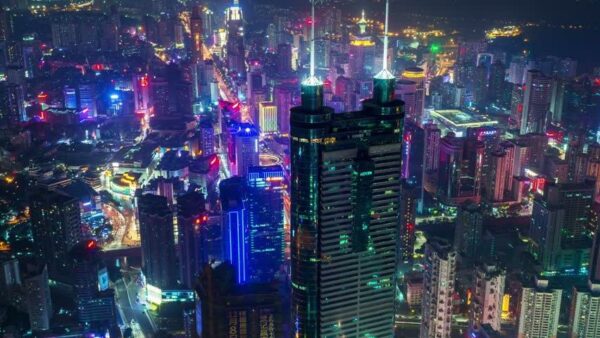Let's get basic fact about modern life out of the way: you can travel from country to country, change jobs, partners, believe in any god you like and in general enjoy life, but that doesn't mean that you are free - you are simply permitted to do these things as these things simply don't influence the System.
There is a lot of things you are not allowed to do, for instance:
- buy chemical reagents at will for experimental purposes
- build nuclear reactors in your garage to start another industrial juggernaut to provide energy abundance
Outsourcing the writing on permissiveness to Ted Kaczynski:
Modern society is in certain respects extremely permissive. In matters that are irrelevant to the functioning of the system we can generally do what we please. We can believe in any religion we like (as long as it does not encourage behavior that is dangerous to the system). We can go to bed with anyone we like (as long as we practice “safe sex”). We can do anything we like as long as it is UNIMPORTANT. But in all IMPORTANT matters the system tends increasingly to regulate our behavior.
Just to be clear: I am not a luddite anarchoprimitivism, actually quite the opposite, but I believe he has a good point.
Steelmanning Ted's hypothesis: if I were permitted to do anything, including the points I mentioned earlier, have individual sovereighty by living completely independently, would that be freedom?
Nietzsche would say no, that it is still not enough:
My conception of freedom. -- The value of a thing sometimes does not lie in that which one attains by it, but in what one pays for it -- what it costs us. I shall give an example. Liberal institutions cease to be liberal as soon as they are attained: later on, there are no worse and no more thorough injurers of freedom than liberal institutions. Their effects are known well enough: they undermine the will to power; they level mountain and valley, and call that morality; they make men small, cowardly, and hedonistic -- every time it is the herd animal that triumphs with them. Liberalism: in other words, herd-animalization.
These same institutions produce quite different effects while they are still being fought for; then they really promote freedom in a powerful way. On closer inspection it is war that produces these effects, the war for liberal institutions, which, as a war, permits illiberal instincts to continue. And war educates for freedom. For what is freedom? That one has the will to assume responsibility for oneself. That one maintains the distance which separates us. That one becomes more indifferent to difficulties, hardships, privation, even to life itself. That one is prepared to sacrifice human beings for one's cause, not excluding oneself. Freedom means that the manly instincts which delight in war and victory dominate over other instincts, for example, over those of "pleasure." The human being who has become free -- and how much more the spirit who has become free -- spits on the contemptible type of well-being dreamed of by shopkeepers, Christians, cows, females, Englishmen, and other democrats. The free man is a warrior. How is freedom measured in individuals and peoples? According to the resistance which must be overcome, according to the exertion required, to remain on top. The highest type of free men should be sought where the highest resistance is constantly overcome: five steps from tyranny, close to the threshold of the danger of servitude. This is true psychologically if by "tyrants" are meant inexorable and fearful instincts that provoke the maximum of authority and discipline against themselves; most beautiful type: Julius Caesar. This is true politically too; one need only go through history. The peoples who had some value, who attained some value, never attained it under liberal institutions: it was great danger that made something of them that merits respect. Danger alone acquaints us with our own resources, our virtues, our armor and weapons, our spirit, and forces us to be strong. First principle: one must need to be strong -- otherwise one will never become strong.
Those large hothouses for the strong -- for the strongest kind of human being that has so far been known -- the aristocratic commonwealths of the type of Rome or Venice, understood freedom exactly in the sense in which I understand it: as something one has and does not have, something one wants, something one conquers”.
Nietzsche's insight goes into the depths of human nature: personal freedom is upstream of individual sovereignty and maximum permissiveness, and we can't have such a society if we are ourselves are not free on the inside.
What's the action to be taken, our mission? To me it is about examining the core of my human nature, discovering what resonates and what doesn't and following these instincts.
Your turn brothers.
